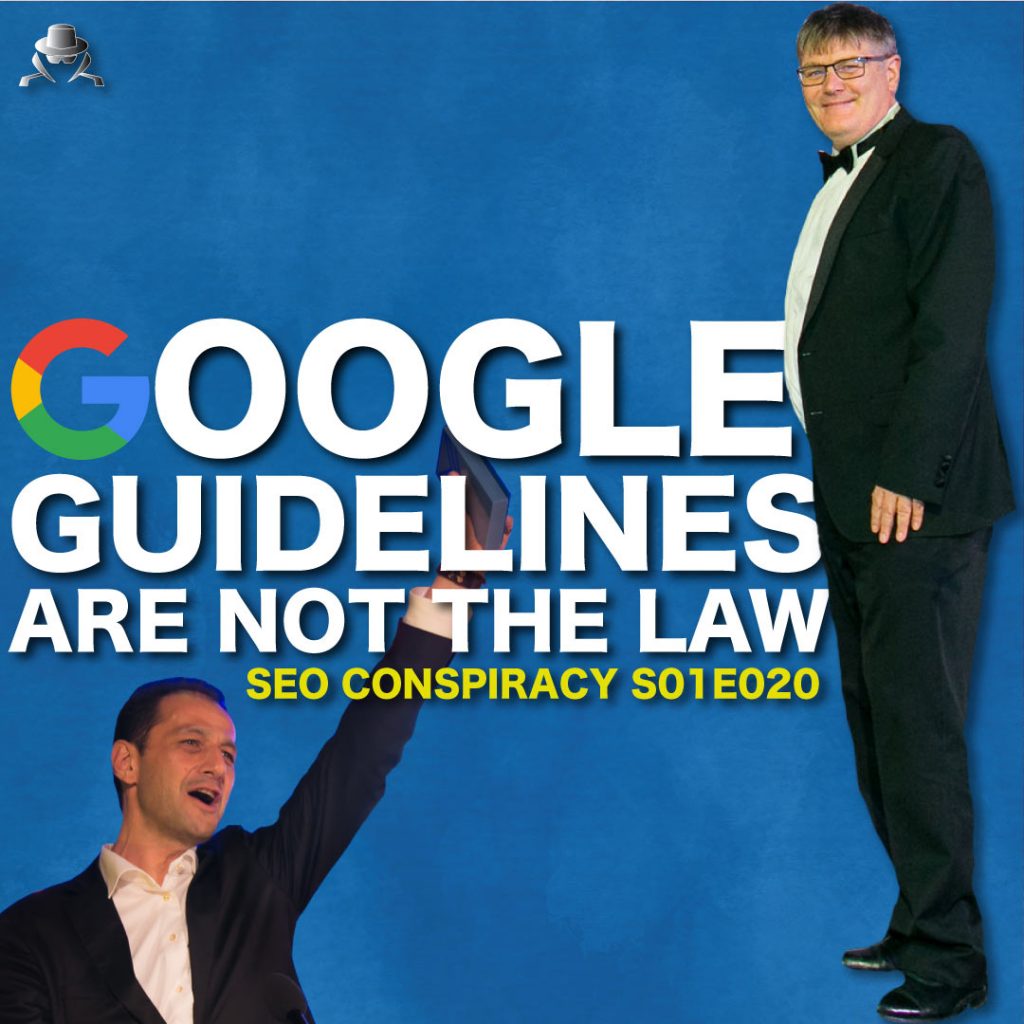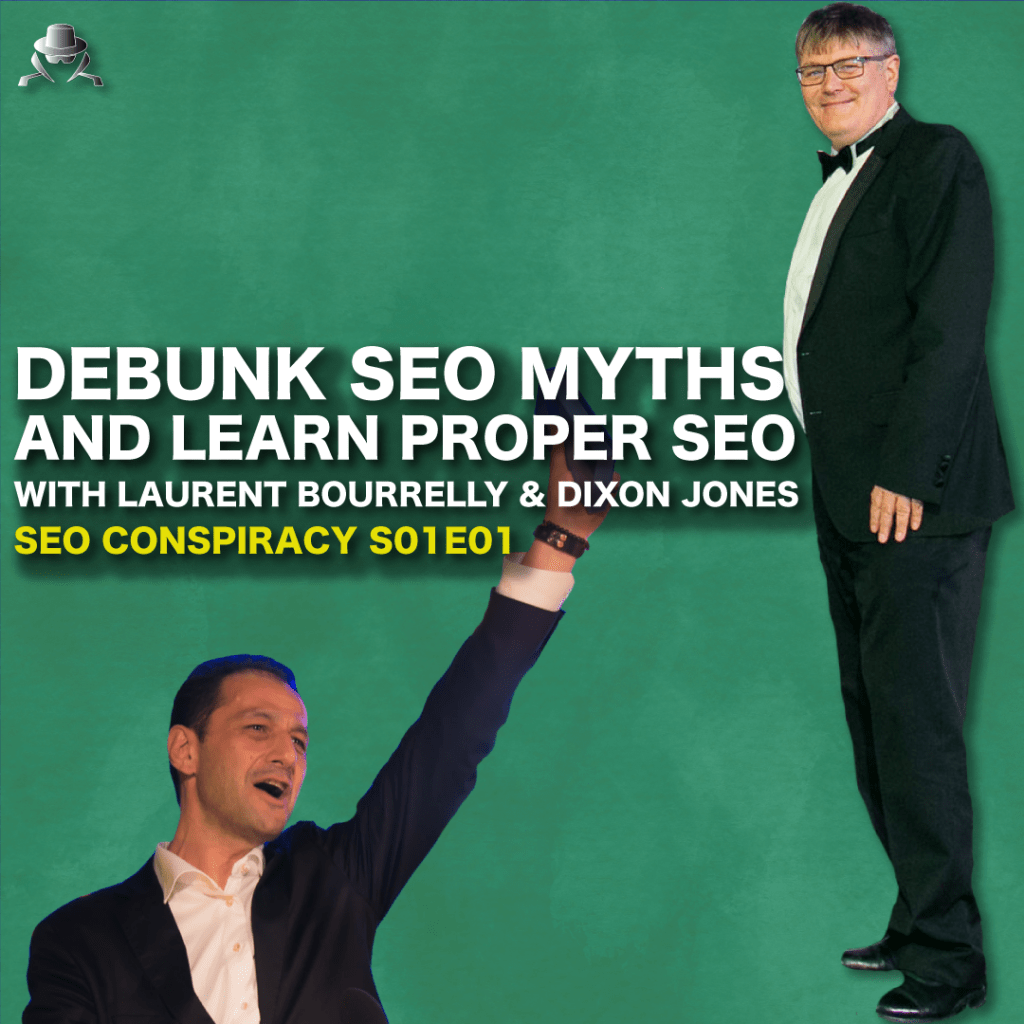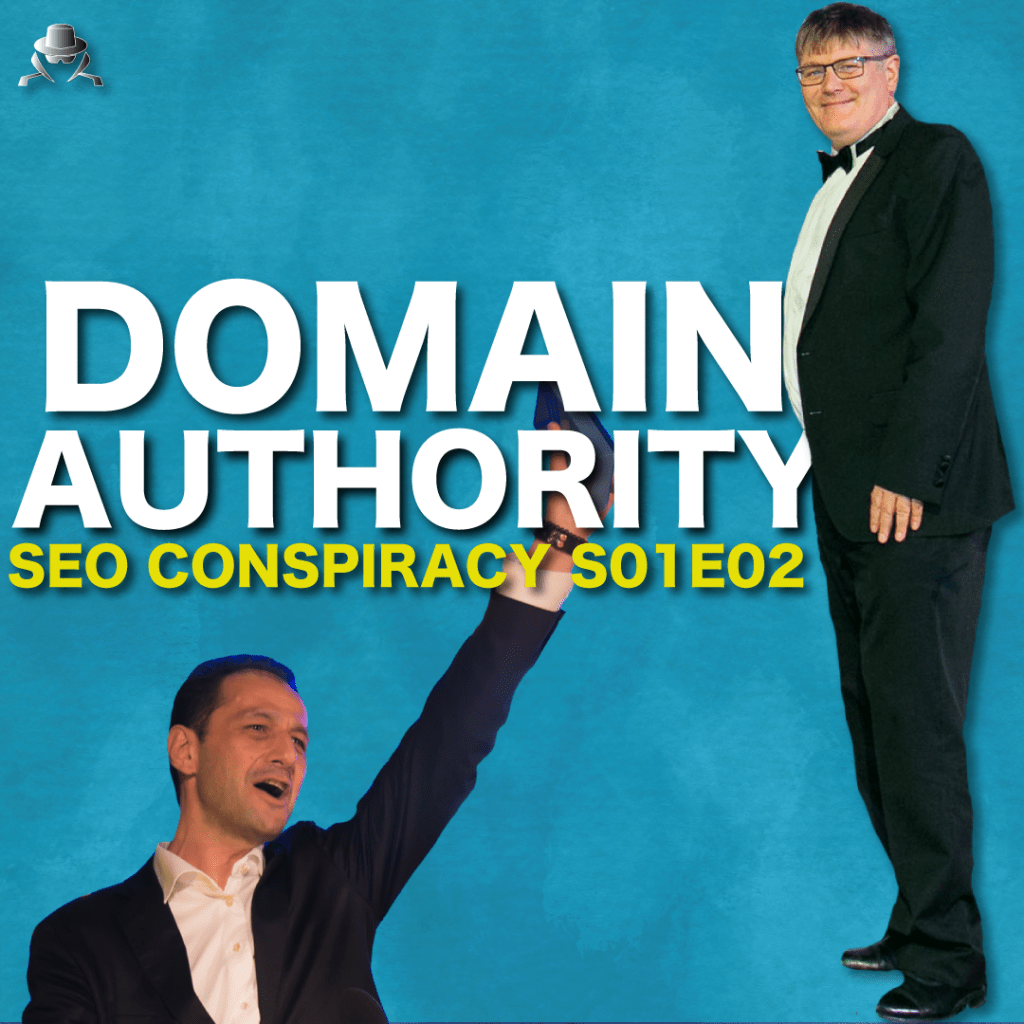Is that the law? What are you supposed to do about Google Guidelines? Should you follow it?
SEO CONSPIRACY S01E20
I love the fact that Google thinks that they should be the police people. It’s crazy.
No, you shouldn’t have to follow the Google guidelines.
What Google says is that often people ignore Google guidelines at their peril. I think that the documentation that’s there is a lot more than most SEOs have ever read.
When you go through the whole stuff, you realize some of the background reasons for something Google did. You realize that they’re trying to build their world from a perspective of crawling all of the content and organizing the world’s information.
When you look at the thing from the perspective of trying to get Google to be a visitor of your website, there are not always the same objectives but when you realize the recommendations Google makes, then sometimes it does make sense to follow the guidelines.
The problem is what Google doesn’t say, and there you need to think a little bit around Google’s motivations.
I loved Matt Cutts because when you were able to read between the lines, when you were able to understand what he was not saying, it gave you a lot of information.
Nowadays it’s always the same thing: build a great website and bla bla bla.
I still maintain that everybody can be good at something and you should try and be the best even if you’re a hairdresser, you’re the best hairdresser in your village and you’re the most remarkable one in your town, you have a thing that you’re good at but certainly, I don’t think the way to get around Google’s guidelines is to try and always feel as if Google is the enemy I guess the thing to do is to try
and work out where the gaps are in what Google is talking about, and they don’t talk about links very much.
Are you a white hat doing black hat without knowing it?
An excellent example: they tried to suppress links so much over the years, and they keep coming back to the story of “Oh, links are only important for discovery”.
Ok, not true. It doesn’t appear that it’s true.
I think that they completely misunderstand what a useful link is but Google doesn’t want to label those points because it’s not in Google’s interests to help webmasters manipulate their algorithm.
Of course, if we want to do search engine optimization, then by definition, trying to get more traffic to your website is manipulating Google.
That’s just what it is.
It becomes impossible not to be a black hat if you follow the strictest guidelines, interpretation of Google’s guidelines. Everybody is a black hat.
Dixon Jones
As you know now, I started with Black Hat, and I love the analogy with the Prince by Machiavelli.
A lot of people understand wrong that book because that book is not a guide for evil people how to do evil. It’s for the good Prince to learn what evil people do to haven’t his head chopped off.
To know evil to do good gives me tremendous power.
I know exactly where is the yellow line. I know exactly if I cross it and push too hard or not.
The worst case is people not knowing that they are crossing the line because they don’t know. They don’t have the information, or maybe they don’t want to know.
Also, there’s another thing.
What used to be White Hat became Black Hat somewhere along the line.
You, you didn’t change what you were doing, but at some point, someone said iframes are wrong, or PageRank sculpting is terrible.
Google tends to have a second agenda for everything they do.
I get the feeling that every Google decision is: “Ok, that’s good for their customers, but now we need to have a secondary metric for us to make money”.
If something doesn’t make money for Google or doesn’t increase Google’s power or authority or control, then it’s not essential for them.
They’re always trying to have an outward message and then an inward reward for Google in everything they do.
I think that comes out in the guidelines sometimes and that’s why you need to see Google’s guidelines as advisory, not compulsory
I don’t know if it’s Picasso or another artist who said
“Good artists copy, Great artists steal.”
It means that you can copy whoever tells you to do something or the Google guidelines or whomever from Google.
It’s the whole difference between average, good and being a great SEO Rockstar, who’s going to achieve results.
I say it often, but the number one quality of a good SEO is to never give up.
You’re going to succeed. You’ll always find a way if you never give up.
Back in the days, we didn’t have all the information we have today; you couldn’t go on YouTube and say “how do I optimize a title tag”.
The idea of good people borrow ideas, and great people steal them outwardly is an interesting another way of looking because, of course, Google is or was for many many years stealing everybody’s data. It was taking it without their permission, and keeping a copy of it on their servers for they had their index of the Internet.
They had taken all your content, and you can’t still cache that content today, so they have literally stolen everybody’s content and legally seem to have got away with it.
When they’re saying “ok we need to have our version of knowledge” and so the knowledge graph is taking over from web pages, so that’s going to change things.
In the years 2020/2030, Google’s going to have its massive library of information which is drawn from webpages.
Long term it’s not going to be about what’s on your web page, it’s about whether Google’s knowledge base is going to give the information and send traffic back to your website.
At its core, just taking Google’s guidelines and treating them like the law is a colossal mistake for SEOs, even the white hat once.
Don Corleone would say keep your friends close and your enemies closer. Don’t take Google as the enemy, understand the information, steal it, be able to read between the lines, make it your own.
Conclusion: Google Guidelines vs the real Law
To close up the topic of “Are Google guidelines the law?”, from a black hat perspective, be careful, it is very easy when you go to the dark side to break the law.
Dudes are saying that they use vulnerabilities, exploit weaknesses in technology and they say “I’m not destroying anything I’m just putting a page with my links”.
Well, that’s illegal man. That’s years of prison, that’s hundreds of thousands in fine.
There’s Google law, and then there’s real law, and they’re not the same thing.
Ok, next time we’ll talk about the Google index: the main index versus the complementary index.
Thanks for your time. Have a great week.
Laurent
Listen to the podcast
Watch the video
Latest posts



